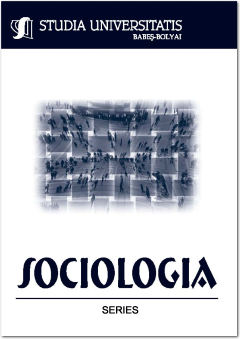ELDERLY PARENTS, ADULT CHILDREN AND THE ROMANIAN TRANSNATIONAL FAMILY: AN INTERGENERATIONAL SOLIDARITY APPROACH
ELDERLY PARENTS, ADULT CHILDREN AND THE ROMANIAN TRANSNATIONAL FAMILY: AN INTERGENERATIONAL SOLIDARITY APPROACH
Author(s): Ionuț FöldesSubject(s): Anthropology, Social Sciences, Psychology, Sociology, Cultural Anthropology / Ethnology, Family and social welfare, Globalization
Published by: Studia Universitatis Babes-Bolyai
Keywords: intergenerational solidarity; transnational families; elderly care; population ageing.
Summary/Abstract: Recent demographic changes such as ageing, low-fertility, and large out-migration from Eastern European countries, brought into discussion the vivid question of the future of intergenerational solidarity within families. In the context of increasing geographical mobility of young people in search for better paid jobs, the unmet need for personal assistance among the elderly, the underdeveloped system of care services, Romania knows new dynamics of intergenerational support. Contrary to perspectives that consider spatial proximity between adult children and their elder parents the indisputable enabling factor for intergenerational support transfers (Rossi and Rossi, 1990), emerging literature on transnational families highlights that such tight kinship relations continue to exist even across borders (Baldassar et al., 2007). Using recent data from the nationwide survey “The Impact of Migration on Older Parents Left Behind in Romania” (2011), this paper examines the complex dynamics of intergenerational solidarity involving adult children as transnational migrants and their elder parents who remain at home. The statistical models used indicate the migrants’ role as providers of remittances, but also the ways in which other forms of support are distributed among the dyads. Despite a possible presupposition that parents who were left at home might only be beneficiaries of support, the data show the opposite: elderly persons, depending on their age, were active providers of help as well.
Journal: Studia Universitatis Babes-Bolyai - Sociologia
- Issue Year: 61/2016
- Issue No: 1
- Page Range: 77-107
- Page Count: 31
- Language: English

